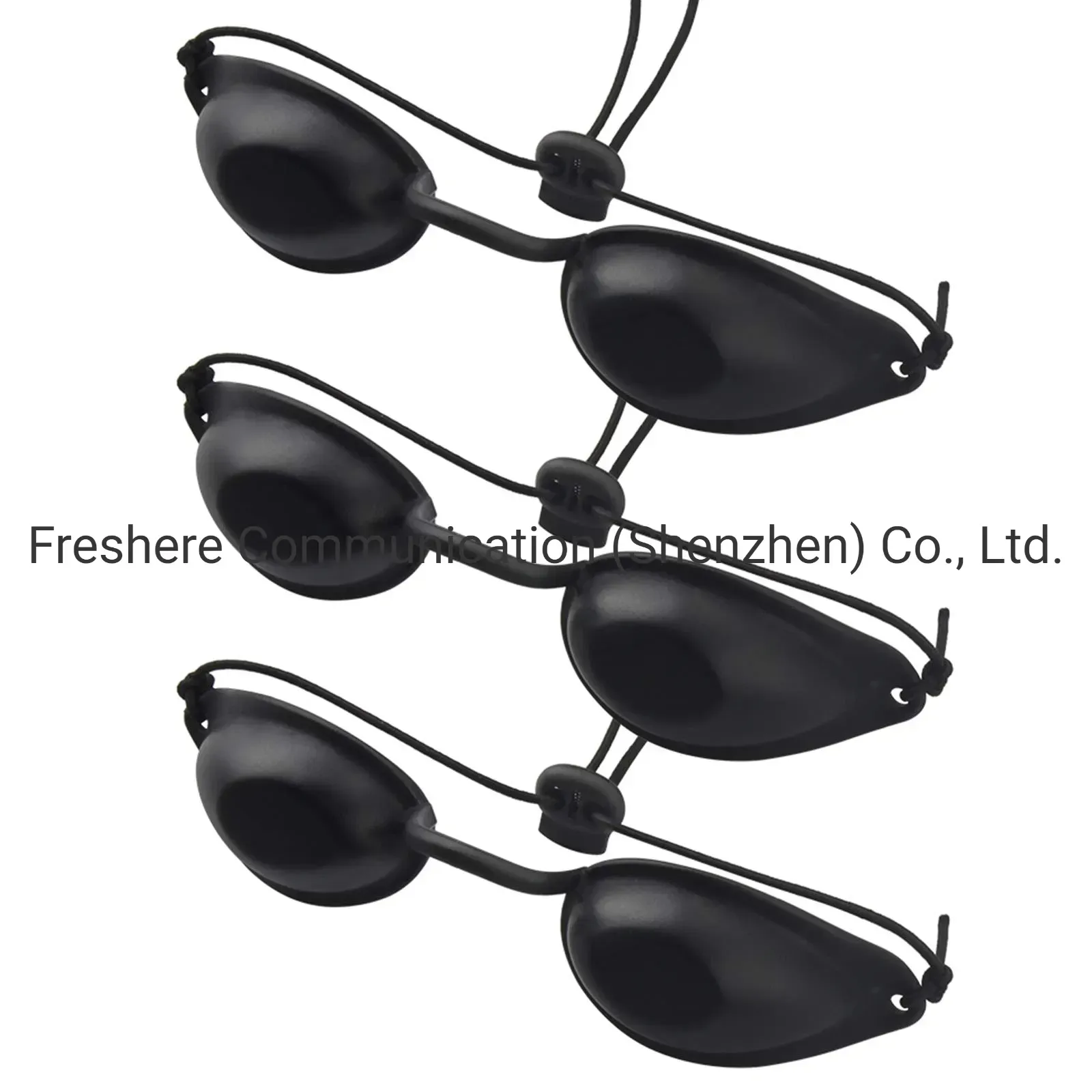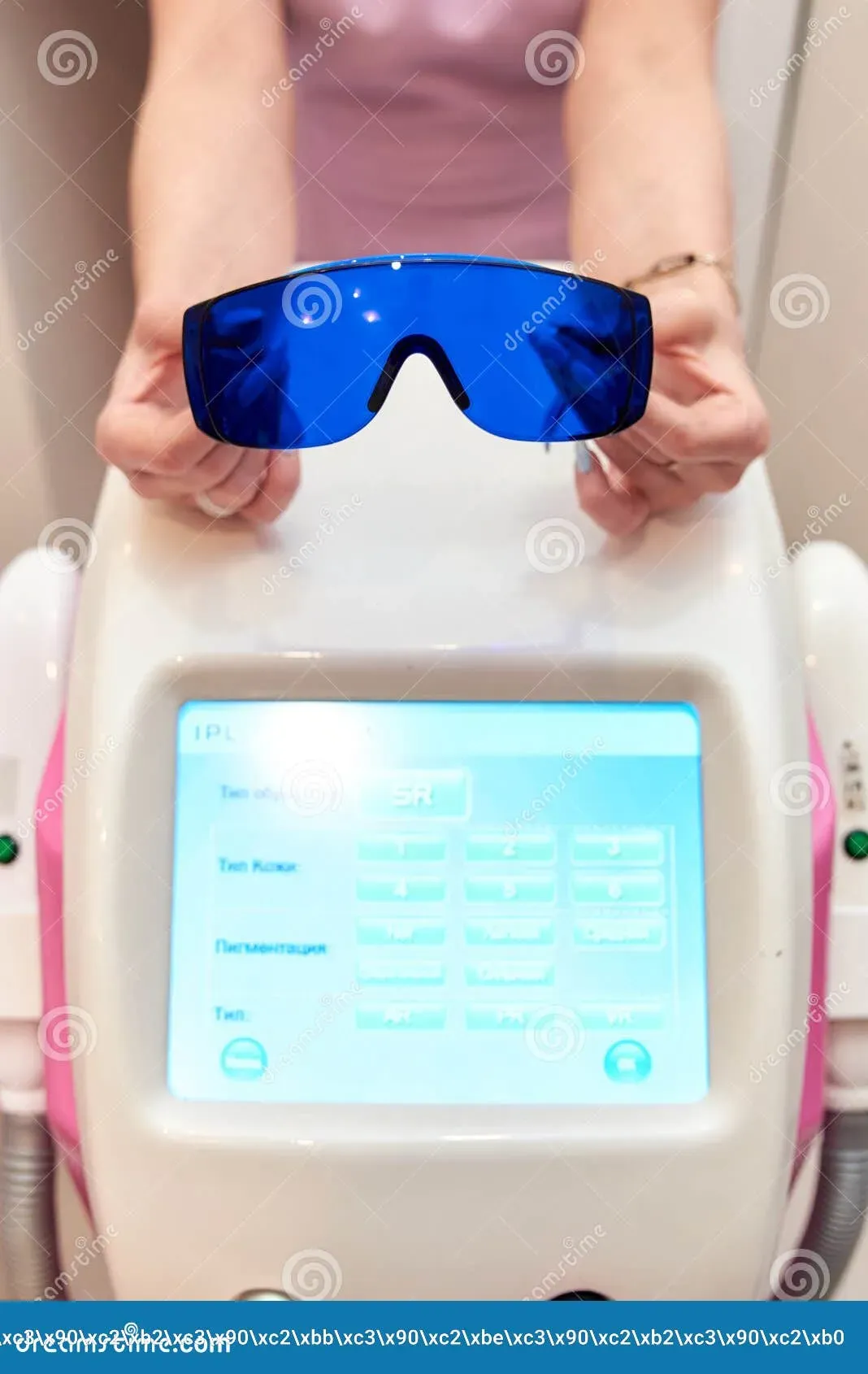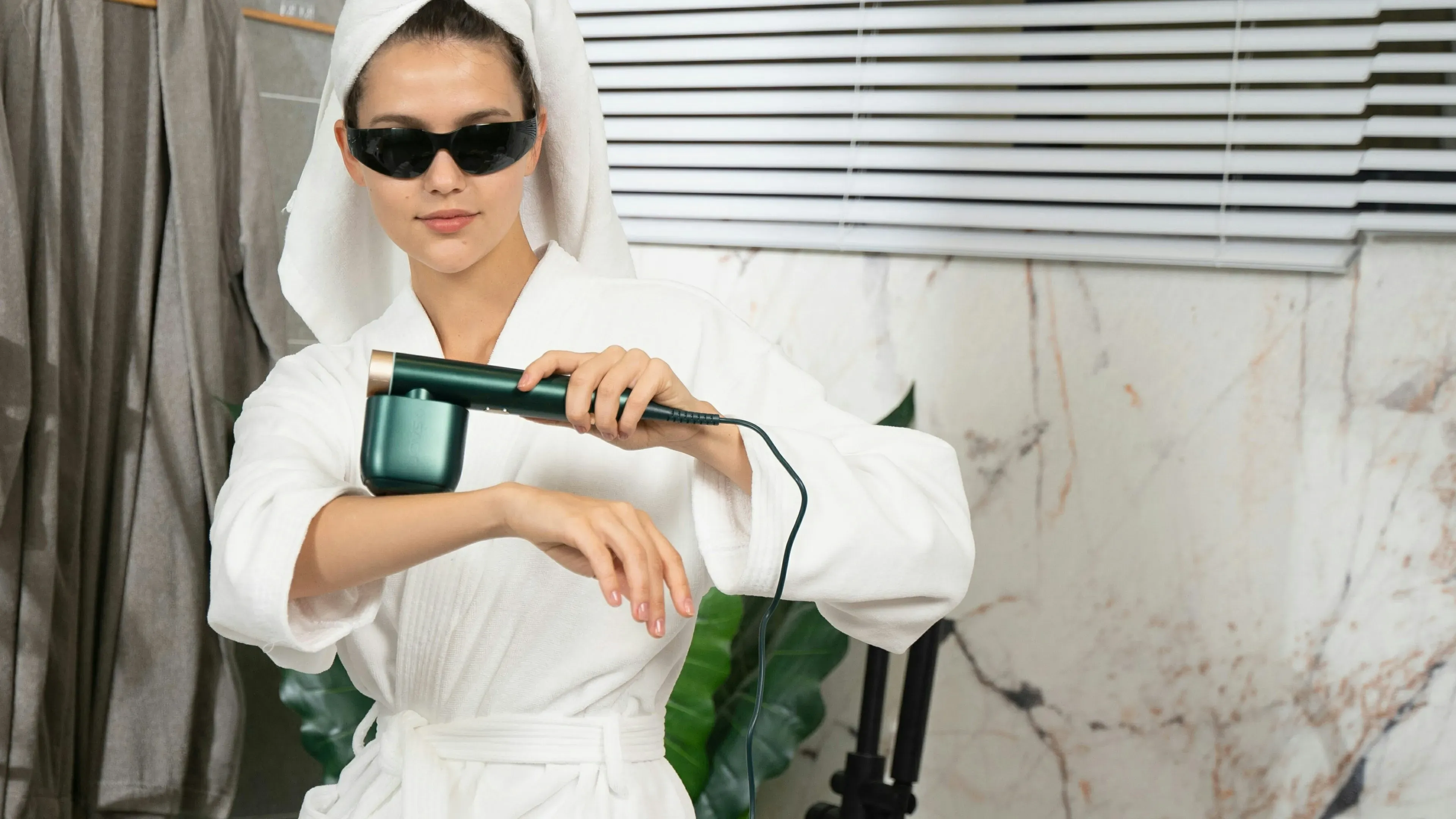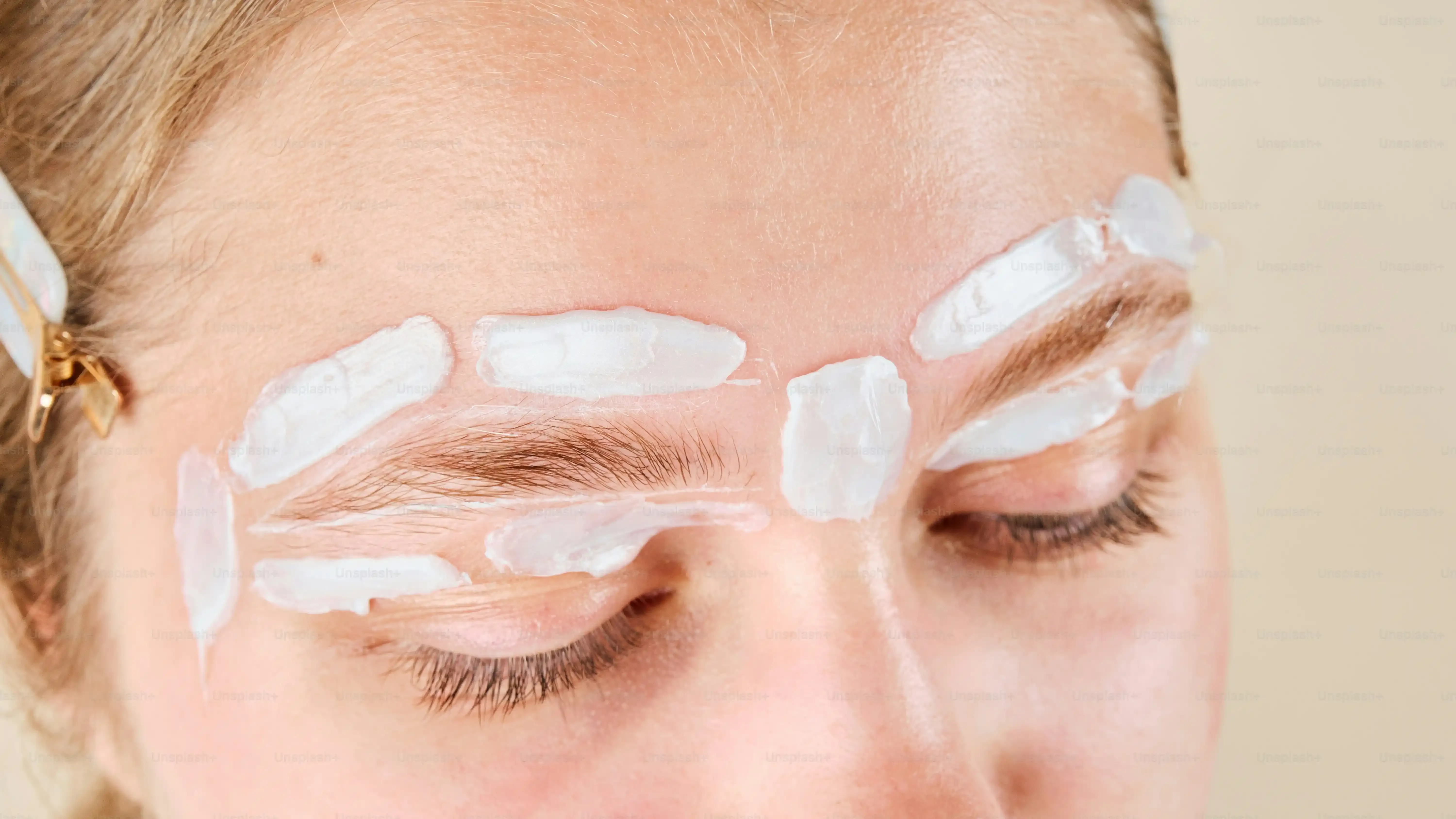Table of Contents
So, you're thinking about laser hair removal. Great! Say goodbye to those pesky razors and waxing appointments. But hold up a second. While zapping away unwanted hair is the goal, have you stopped to think about what else that powerful laser beam is doing? Specifically, what about your eyes?
Why You Absolutely Need the Best Eye Protection for Laser Hair Removal

Why You Absolutely Need the Best Eye Protection for Laser Hair Removal
Laser Beams Aren't Just Zapping Hair, They're Zapping Danger
Look, laser hair removal is amazing for getting rid of fuzz, right? But let's be real, you're pointing a concentrated beam of light at your body. This isn't your average flashlight. These lasers operate at specific wavelengths designed to target pigment – the stuff that gives hair its color. Problem is, the back of your eye, your retina, is also loaded with pigment. When that laser light hits the retina, it doesn't just warm it up; it can cause immediate, irreversible damage.
Think of it like focusing a magnifying glass on a leaf in the sun. Except your eye is the leaf, and the laser is a super-powered sun. The energy gets absorbed by the pigment, heats up rapidly, and can literally burn the tissue. That's not a risk worth taking for smooth legs or underarms.
The Nasty Ways Lasers Can Mess With Your Vision
So, what kind of damage are we talking about? It's not just a little blurriness. We're talking about potentially blinding yourself. A direct hit, or even strong reflections off the skin or surrounding surfaces, can cause thermal injury to the retina. This can lead to blind spots, distorted vision, or in severe cases, complete loss of sight in the affected eye. It's like having a tiny part of your world permanently erased.
Even lower levels of exposure can cause photokeratitis, which is basically a sunburn on your cornea, or cataracts over time. Why You Absolutely Need the Best Eye Protection for Laser Hair Removal isn't just marketing hype; it's about protecting your most precious sense from a very real threat.
- Permanent blind spots (scotoma)
- Distorted vision (metamorphopsia)
- Flash blindness (temporary vision loss)
- Cataracts (clouding of the lens)
- Photokeratitis (corneal burn)
Standard Eyewear Won't Cut It – You Need Specialized Gear
You might think your regular sunglasses or even those flimsy plastic goggles handed out for tanning beds will do the trick. Absolutely not. Laser hair removal devices use specific wavelengths of light that these standard types of eyewear aren't designed to block. They might make the light look dimmer, but they aren't stopping the harmful radiation from reaching your retina.
Proper laser safety glasses or goggles are engineered to absorb or reflect the specific wavelengths emitted by the laser being used. They have an Optical Density (OD) rating that tells you how much light they block at a particular wavelength. Getting the wrong type or insufficient protection is like wearing a paper mask in a chemical factory – utterly useless and dangerously misleading. Insisting on the best eye protection for laser hair removal ensures you have the right barrier against those potent beams.
Different Types of Laser Safety Eyewear

Different Types of Laser Safety Eyewear
Glasses, Goggles, and Shields: What's the Difference?
so standard sunglasses are out. What are we actually looking for? When it comes to laser safety eyewear for hair removal, you'll typically see a few main types: glasses, goggles, and sometimes shields. Glasses look pretty much like regular spectacles but with specialized lenses. They're often used for practitioners or treatments where there's less risk of splash or airborne particles, although with lasers, you want maximum protection.
Goggles, on the other hand, fit snugly against your face, creating a seal around your eyes. This is generally preferred for patient protection during treatment, as it blocks light from all angles, including peripheral light that might sneak in with glasses. Think of them as the heavy-duty option, providing a more complete barrier. Shields are larger face coverings, sometimes used in specific medical procedures, but for hair removal, it's usually glasses or goggles.
Understanding Filter Types: Absorptive vs. Reflective
Beyond the physical shape, the real magic is in the lens itself. Laser safety eyewear uses different filter technologies to block the laser light. The two main types are absorptive and reflective. Absorptive filters are made from materials that absorb the laser's specific wavelength. They often look like darkly tinted lenses. They're effective, but they can heat up if exposed to very intense beams for extended periods, though this is less of a concern for typical hair removal pulses.
Reflective filters use special coatings that reflect the laser light away from your eyes. These often look like mirrors. They don't heat up as much as absorptive filters and can offer very high levels of protection. Many high-quality safety glasses and goggles for laser hair removal use a combination of both absorptive and reflective technologies to ensure maximum safety across the required wavelengths. Knowing the difference helps you understand why some eyewear looks one way and some another, but the key is checking that crucial OD rating for the laser being used.
- Safety Glasses: Look like regular glasses, suitable for some practitioner use.
- Safety Goggles: Fit snugly, provide a seal, best for patient protection.
- Absorptive Filters: Absorb specific laser wavelengths, often tinted.
- Reflective Filters: Reflect laser wavelengths, often have a mirror finish.
- Combination Filters: Use both methods for enhanced protection.
Choosing the Best Eye Protection for Laser Hair Removal: What to Look For

Choosing the Best Eye Protection for Laser Hair Removal: What to Look For
Matching the Eyewear to the Laser Wavelength and Power
so you know you need more than just sunglasses. But how do you pick the *right* specialized eyewear? The absolute most critical factor when Choosing the Best Eye Protection for Laser Hair Removal is ensuring the protection matches the specific laser being used. Different lasers use different wavelengths of light. A laser for hair removal might operate at 810nm or 1064nm, for example. Your safety glasses or goggles *must* be rated to block that exact wavelength, or a range that includes it. Look for the numbers printed on the eyewear itself or the packaging. It will usually list the wavelength(s) and an Optical Density (OD) rating. The OD tells you how much the light is reduced. For professional laser hair removal, you need a high OD rating, often OD 7+, at the specific wavelength of the laser. Anything less is like bringing a squirt gun to a fire.
Don't just take someone's word for it. Ask the practitioner what laser they are using and what its wavelength and power output are. Then, verify that the eyewear they provide has the correct rating. If they can't tell you, or the eyewear isn't clearly marked, walk away. Seriously. Your eyesight is worth more than a discount session.
Considering Fit, Comfort, and Certification
Beyond the technical specs, how the eyewear fits matters a lot. Goggles should fit snugly around your face without leaving gaps. Light can sneak in through even small openings, hitting your peripheral vision or reflecting off the inside of the lens. Glasses should wrap around the sides of your head to minimize peripheral exposure. Comfort is also key, especially if you're having a longer session. If the eyewear is pinching or uncomfortable, you might be tempted to adjust it or take it off, which is a huge risk. Look for adjustable straps on goggles or flexible frames on glasses.
Finally, check for certifications. Reputable laser safety eyewear should meet international standards, like ANSI Z136 in the US or EN 207/208 in Europe. These standards ensure the eyewear has been tested and verified to provide the stated level of protection. Think of it as quality control for your safety. Don't settle for uncertified or generic options. Protecting your vision during laser hair removal at hairawaybylaser.com, or anywhere for that matter, requires certified, correctly rated eyewear.
- Verify Wavelength Rating: Does the eyewear block the specific laser wavelength (e.g., 810nm, 1064nm)?
- Check Optical Density (OD): Is the OD rating high enough for the laser's power (often OD 7+)?
- Ensure a Snug Fit: No gaps around the eyes for goggles, wrap-around design for glasses.
- Prioritize Comfort: Will you be able to wear them without distraction during the treatment?
- Look for Certifications: Does the eyewear meet standards like ANSI Z136 or EN 207/208?
Essential Tips for Eye Safety During Your Treatment

Essential Tips for Eye Safety During Your Treatment
Double-Check Everything Before the Laser Fires
Alright, you've done your homework, you know the risks, and you've hopefully found a place that uses legit eyewear. But don't just plop down and assume everything's golden. Before that laser even hums to life, you need to be your own safety advocate. First off, look at the eyewear they give you. Does it look sturdy? Is it clean? More importantly, can you see the wavelength and OD rating printed on it? If not, ask. Politely, but firmly. They should be able to show you that the eyewear matches the laser they're using. If they hesitate or can't produce the info, that's a major red flag. Also, make sure the eyewear fits properly. Goggles should seal around your eyes, and glasses should wrap around the sides. No gaps allowed. A gap is an invitation for a laser beam to ruin your day.
Keep Those Goggles Glued to Your Face
This sounds ridiculously obvious, right? But you'd be surprised. The laser fires, you feel a little zap, and maybe it's slightly uncomfortable. Your first instinct might be to lift the goggles for just a second, maybe peek. Do not do this. Seriously, resist the urge with every fiber of your being. Once that laser is active in the room, even if it's not pointed directly at your eyes at that exact second, reflections can bounce off surfaces. Keeping the best eye protection for laser hair removal firmly in place from the moment the session starts until the technician tells you it's completely over is the single most important thing you can do. Don't adjust them unless absolutely necessary, and if you do, do it quickly and without lifting them away from your face. It's maybe 15-30 minutes of mild inconvenience for a lifetime of being able to see.
- Verify the eyewear has the correct wavelength and OD rating for the laser being used.
- Ensure the eyewear fits snugly with no gaps around the eyes.
- Never, ever remove or adjust your eye protection while the laser is active in the room.
- Communicate immediately if you feel discomfort or suspect your eyewear has shifted.
Speak Up and Check In Post-Treatment
During the treatment, if you feel any discomfort *in your eyes*, or if the eyewear feels loose, or if you see flashes of light that seem too bright or are outside your protected field of vision, say something *immediately*. Don't wait. The technician should stop the treatment right away to assess the situation. A good practitioner will appreciate you prioritizing your safety. After the session is finished and the technician confirms it's safe to remove your eyewear, take them off slowly. Take a moment to check your vision. Do you notice any blind spots? Any blurriness that wasn't there before? Are your eyes watering excessively or feeling gritty? While minor irritation might occur, anything more significant warrants contacting the clinic and potentially seeing an eye doctor. Don't dismiss it. Your eyes aren't worth the gamble.
Don't Gamble With Your Vision
Look, the promise of smooth skin from laser hair removal is appealing, no doubt about it. But chasing that goal shouldn't mean putting your eyesight on the line. We've talked about why those laser beams are dangerous and why cutting corners on eye protection is just plain foolish. Investing in or ensuring your clinic provides the best eye protection for laser hair removal isn't an optional add-on; it's a fundamental safety measure. Permanent vision damage isn't a reversible side effect. So, prioritize your peepers, ask the tough questions about the eyewear being used, and make sure you're fully protected every single time. Your future self, the one with clear vision, will thank you.
